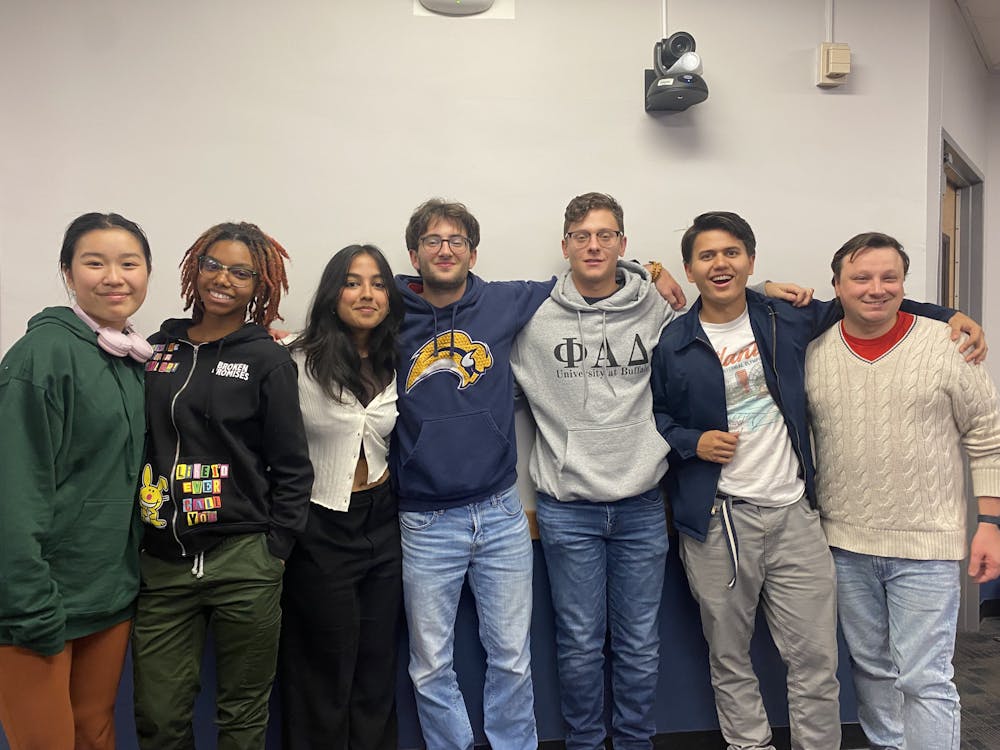Every Thursday, students at UB set aside all other business to tackle some of the world’s most sophisticated questions: “What is freedom?” “Is justice a fixed point?” “How does capitalism affect our relationships with each other?”
There’s no money, policy decisions or elections at stake. The members of the Philosophy, Politics and Economics club — better known as the PPE club — do it all for fun.
The club was founded this semester as a forum for students who want to talk about issues at the nexus of philosophy, politics and economics. The club aims to offer “philosophical discussion, community engagement, guest speakers and career opportunities.”
“PPE club is a safe space to discuss different ideas, but also do it in a casual way with your peers,” club vice president and senior PPE major Astha Pandey said. “There’s no greater say here, you share your opinions, and you share them with your peers over a slice of pizza.”
The club’s founding comes just three years after the creation of UB’s PPE program. The PPE minor was first introduced in the fall of 2020, followed by the addition of the PPE major within a year.
In its first two months of existence, the club has hosted discussions about modern morality, pragmatism, capitalism, identity, justice and more, sometimes with guest speakers like UB PPE faculty and a U.S. diplomat in attendance. Club president and senior PPE major Thomas Dias has also used meetings to recruit volunteers for causes like “Justice for Migrant Families,” a nonprofit organization that assists migrants in Western New York.
Sometimes the club’s discussions go in unexpected directions. For example, one recent meeting in O’Brian Hall began with the question, “What is freedom?”
“Freedom is cringe,” first-year PPE major Kyle Sidlocha answered.
“Can you explain why freedom is cringe?” a confused peer replied.
“Freedom is cringe because freedom as a concept is far too different from one person to another,” Sidlocha explained with a grin. “Freedom and liberty are individualistic and often end up contradictory.”
Ironically enough, the opportunity to converse freely in an accepting environment is what draws Sidlocha to club meetings.
“You can have frictionless dialogue with each other,” Sidlocha said. “Every other club I’ve been a part of, I felt like I had to skew my opinions one way or another to still be accepted in some type of circle. But in here, at the very least I know someone who’s sympathetic to my point of view.”
Dias and Pandley have big plans for the club that they hope will “bring people together in order to enrich their own lives.” Upcoming events include a collaboration with graduate school group minorities in philosophy, volunteer work, larger collaborations with other clubs at UB.
“What we want to do is improve the lives of our members,” Dias said. “That’s basically our number one goal, broadly speaking.”
CORRECTION: An earlier version of this article stated that Thomas Dias used club meetings to raise money for "Justice for Migrant Families." That is inaccurate. Dias actually used club meetings to recruit volunteers. We regret this error.
The features desk can be reached at features@ubspectrum.com
Ferdinand Babiano is a contributing writer.





